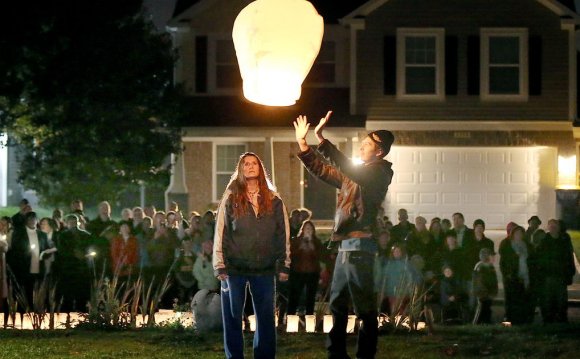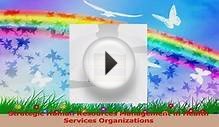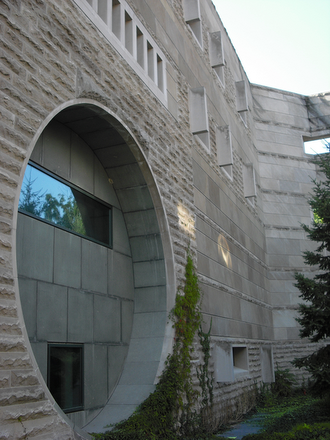
 Waste Management Home
Waste Management Home
Garbage is collected every second week, as shown in the Waste Management Calendar below.
2016 Waste Management Calendar [PDF]
When is my Collection Day?
You can confirm when your garbage is collected by using the street locator at the link below.
When Placing Garbage at the Curb for Collection, Please Remember:
- Use garbage bags or cans. Cardboard boxes will not be collected as garbage;
- Glass and mirrors must be securely wrapped in cardboard and marked as 'Glass for disposal';
- Tie or bundle loose items so that they are no more than 1.2m (4ft.) in length;
- The Maximum weight is 18 kgs (40lbs) per item. This does not apply to furniture;
- Furniture is collected with your regular garbage and each piece counts as one item;
- Garbage must be placed at the curb no later than 7 a.m. on the day of collection and not earlier than 6 p.m. on the night preceding collection;
- Any material not collected must be removed from the curb by the homeowner; and
- Richmond Hill's current waste limit is three bags or items per collection.
3 Item Waste Limit, Collected every other week
Please be advised that the bi-weekly limit for waste collection is three (3)* items per collection. Garbage can be placed out at the curbside in any combination up to three (3) of the following:
- One regular sized garbage bag (maximum weight: 18 kg)
- One regular sized garbage can (maximum weight: 18 kg)
- One bundle of material (tied with string, maximum weight: 18 kg and no longer than 1.2 metres)
- One piece of furniture
If you require collection of waste beyond the limit, a collection tag must be affixed to each item over the limit. The collection tags are $2 each and are only sold in quantities of five. There is no limit to the number of tagged items that can be placed out for collection.
To use the collection tag, simply secure the top of your garbage bag with a twist tie then attach the collection tag around the neck of the bag, making sure to fasten the tag to itself. If you are using a garbage can, stick the tag to the top piece of garbage inside the can so it can be easily seen.
Non-Collectable Garbage Includes:
- Hazardous waste
- Renovation waste
- Tires
- Yard Waste & Grass Clippings
- Recyclable Material
- Garbage in Cardboard Boxes
Excess Waste Disposal
For the disposal of excess waste and construction/demolition material, you may take material to the Region of York Transfer Station or the Elgin Mills Community Environmental Centre. Please be advised that disposal fees will be based on material being disposed of. Regional Drop-off DepotGeorgina Transfer Station
23068 Warden Avenue
(17 km north of Davis Drive)
Monday to Saturday
8 a.m. – 5 p.m.
Please note that new fees for some material may apply.
Tips You Can Use to Reduce Your Garbage
- Use a refillable mug for coffee or other beverages on the go;
- Purchase items in bulk whenever possible...bring your own containers to the bulk store if possible;
- Buy products that will last; make durability, not price, your primary purchasing decision-making factor;
- Instead of buying new toys or tools, try sharing with friends;
- Re-upholster worn out furniture instead of buying new - often the frame will far outlast the upholstery;
- Buy products made from recycled materials whenever possible - sometimes these products cost less, making the choice even easier;
- When faced with two similar products of different brands, choose the product with the least amount of packaging;
- Before you replace something old with something new, attempt to have it repaired; this could save you some money as well as reduce waste;
- Avoid purchasing disposable products - re-usable products are better for the environment, and will save you money in the long run;
- Avoid buying single serving or over-packaged foods – there is always an alternative with less packaging (and likely more nutritious);
- Whenever possible choose products that are sold in re-fillable or recyclable containers;
- Consider purchasing used goods before purchasing new; this is a great re-use and cost-saving option for the consumer;
- Try giving an item a “new life” by using it in an innovative way such as peanut butter jars for storing nuts and bolts or comic strips or colourful paper for gift wrap;
- Send e-cards not paper or card ones. The thought is what's important, not the material. If you add up the cost over a year's celebrations it really does make a difference;
- Use rechargeable batteries instead of disposables;
- Reuse plastic bags. To help you remember to do this, keep some in your pocket or handbag – they don't take up much space and it stops you accumulating bags at home;
- Buy your fruit and vegetables from a local market to grocers. Support your local Farmer's Market if you have one – you'll be amazed how good the fresh food is! Buy organic produce wherever possible;
- Use cloths rather than disposable kitchen roll, or paper towel. Saves you money as well as reducing waste;
- Think before you print! How many times have you printed something and not referred to it again?;
- If you do print, use both sides of the paper;
- Recycle your inkjet cartridges and old electronics;
- Use your local library rather than buying books;
- Use cloth diapers, instead of disposable diapers;
- Instead of disposable goods, give cinema or concert tickets as presents;
- Buy serviceable or quality items and avoid single-use items;
- Choose paper bags instead of plastic as they can be reused for organics and composting, or be recycled. Or purchase shopping bins or re-usable cloth bags for bringing your groceries home; and
RELATED VIDEO




 Human resource management (HRM, or simply HR) is the management of an organization's workforce, or human resources. It is responsible for the attraction, selection, training, assessment, and rewarding of employees, while also overseeing organizational leadership and...
Human resource management (HRM, or simply HR) is the management of an organization's workforce, or human resources. It is responsible for the attraction, selection, training, assessment, and rewarding of employees, while also overseeing organizational leadership and...








